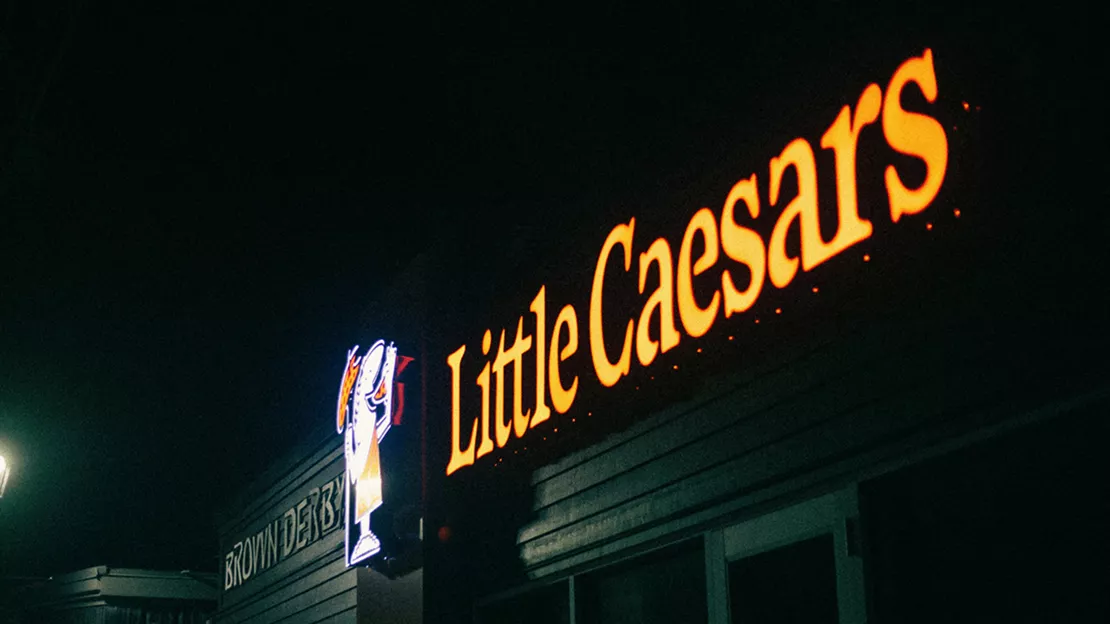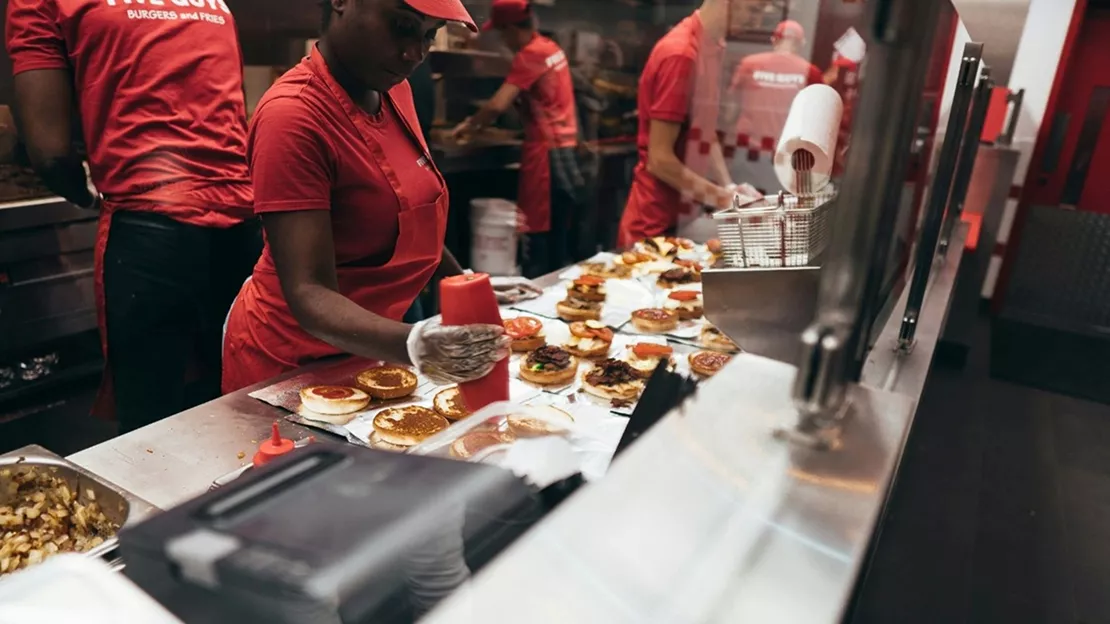Protect Your Franchise Profits from Tax Mistakes

Authored by: Kim Wegner — Partner, CPA, CVA, CGMA | Date Published: October 23, 2025
Featured Topics:
- What’s the True Cost of Managing Franchise Taxes on My Own?
- What Tax Issues Do CPAs Often Miss for Franchise Operations?
- Why Choose Year-Round Planning Over April Scrambling?
- How Does MBE Specialize in Franchise Accounting?
- What’s the ROI of Professional Tax Planning?
- Ready to Stop Leaving Money on the Table?
One restaurant franchise owner faced a $30,000 mistake that could have been avoided with proper franchise tax planning. This was the reality after missing a key tax credit. As a franchisee, you pour your heart into making certain every guest leaves happy, asking, “Would you like to leave a tip?” while managing staff, menus, and operations. But tackling taxes on your own can lead to costly business mistakes that drain your profits and energy.
At MBE CPAs, we work alongside you, offering tax strategies for quick-serve business owners and a community-focused approach to answer your franchise tax questions and help your business grow. Let’s look at common mistakes in self-prepared franchise tax returns and how professional planning can keep your restaurant financially healthy.
What’s the True Cost of Managing Franchise Taxes on My Own?
Doing your own taxes might seem like a good way to save money, but for franchise owners, common mistakes can really hurt your bottom line. The restaurant franchise model presents financial challenges that many tax software programs overlook. Here’s what you risk by handling taxes on your own:
- Missed Deductions and Credits: Many franchisees ask, “What is a tip credit?” The FICA tax tip credit offsets payroll taxes on restaurant tips reported by servers, potentially saving a mid-sized franchise $10,000 to $20,000 annually. Missing this can be a costly business mistake.
- State-Specific Franchise Taxes: Operating in multiple states? Each has different franchise tax rules, like Delaware’s $200 late fee plus 1.5% monthly interest. Missteps here add up fast.
- Audit Risks: The IRS frequently scrutinizes restaurants due to cash transactions, pooled tips for staff, and tip reporting. Errors in reporting restaurant tips or misclassifying employees versus independent contractors can trigger costly audits.
You already have a lot to manage, from scheduling servers and managing tip-outs to growing your customer base. Attempting to prepare your taxes independently only adds unnecessary stress, while working with a skilled tax advisor can protect your profits.

What Tax Issues Do CPAs Often Miss for Franchise Operations?
CPAs may handle standard tax returns, but they often lack the insight to address franchise tax questions specific to restaurant franchises. Here’s what they frequently overlook:
- Franchise Fee Nuances: Initial franchise fees can be amortized over the term of the agreement, while royalty fees are deductible expenses. Misclassifying these reduces your deductions.
- Tip Reporting Compliance: Restaurant servers’ tips and tip-outs are critical, and the tip credit can lower your payroll taxes. Generic CPAs may not prioritize what the tip credit is or guarantee accurate tip reporting.
- Multi-State Challenges: If your franchise spans multiple states, you face varied tax rules. Without the right guidance, it’s easy to file incorrectly or overpay.
The specialized knowledge of an accounting team with a deep understanding of the restaurant industry is essential for addressing these specific challenges, helping you maximize savings and remain compliant.
Why Choose Year-Round Planning Over April Scrambling?
Waiting until April to tackle taxes is like prepping ingredients during a dinner rush: it’s chaotic and risky. Year-round planning addresses operational tax questions proactively. Here’s why it’s a major advantage:
- Maximize Tax Credits: Credits like the Work Opportunity Tax Credit (WOTC), available through December 31, 2025, reward employers who hire veterans or individuals receiving assistance. Early planning secures your qualification.
- Stay Audit-Ready: Consistent tracking of payroll, inventory, and tip income prepares you for IRS scrutiny, avoiding last-minute chaos.
- Adapt to Policy Changes: With the One Big Beautiful Bill Act (OBBBA) now in effect, franchise owners must adjust their operations to accommodate a new tax deduction for employee tips. This requires updating payroll and reporting to comply with the new regulations. Staying proactive about such legal changes is critical for business success.
Embracing year-round planning keeps your tax strategy continuously aligned with your growth goals, empowering you to proactively manage changes and secure a strong financial future for your franchise.
How Does MBE Specialize in Franchise Accounting?
MBE CPAs is more than just an accounting firm. We are a community dedicated to your success as a restaurant franchise owner. Our specialized approach helps you avoid typical errors:
- Franchise Insight: Our team has hands-on experience with restaurant franchises, ranging from Culver’s to independent establishments, and understands topics such as royalties, tips, and more.
- Multi-State Knowledge: We stay current on state-specific tax rules, maintaining compliance across jurisdictions such as California and Texas.
- Technology Recommendations: We recommend cloud-based tools to improve your POS systems, enabling real-time tracking of sales, tips, and expenses, saving you time and reducing errors.
- Proactive Support: We plan throughout the year, not just at tax time, to identify deductions and credits that strengthen your bottom line.
Our clients, whether single-unit or multi-location franchisees, rely on us to deliver results that fuel growth. We’re your partners in building a flourishing restaurant business, not just number-crunchers.
What’s the ROI of Professional Tax Planning?
Investing in professional tax planning with MBE CPAs yields clear returns for your restaurant franchise, helping you avoid common mistakes. Here’s how:
- Cost Savings: For example, a franchise with 20 tipped employees might save an estimated $5,000 to $15,000 annually by properly claiming tax credits such as the tip credit or WOTC.
- Penalty Avoidance: Accurate filings prevent penalties, such as Texas’s 5-10% late fees or Delaware’s $200 penalty plus interest, which often covers our fees.
- Time Efficiency: Automating tax calculations frees you to focus on training servers or increasing guest satisfaction to earn more restaurant tips and manage gratuity distribution successfully.
- Growth Support: Clear financial insights empower decisions about expansion, equipment, or marketing to attract more diners.
Professional tax planning is an investment in your franchise’s future, protecting profits and supporting long-term success.
Ready to Stop Leaving Money on the Table?
As a restaurant franchise owner, you have enough on your plate without wrestling with tax questions or complicated tax forms. At MBE CPAs, we’re here to lift that burden with personalized, community-focused tax planning solutions. Our team offers:
- Free Initial Consultation: Discuss your franchise’s specific needs and uncover tax-saving opportunities.
- Franchise Tax Opportunity Assessment: Identify credits and deductions customized to your restaurant, including tip-outs and multi-state savings.
- Year-Round Planning Options: Collaborate with us year-round to maintain compliance, promote audit readiness, and maintain financial strength.
Don’t let errors from self-managed tax preparations cost you thousands or distract you from delighting your guests. Schedule your franchise tax strategy consultation with MBE CPAs today and join a community committed to your growth. Let’s build a stronger financial future for your restaurant together!
